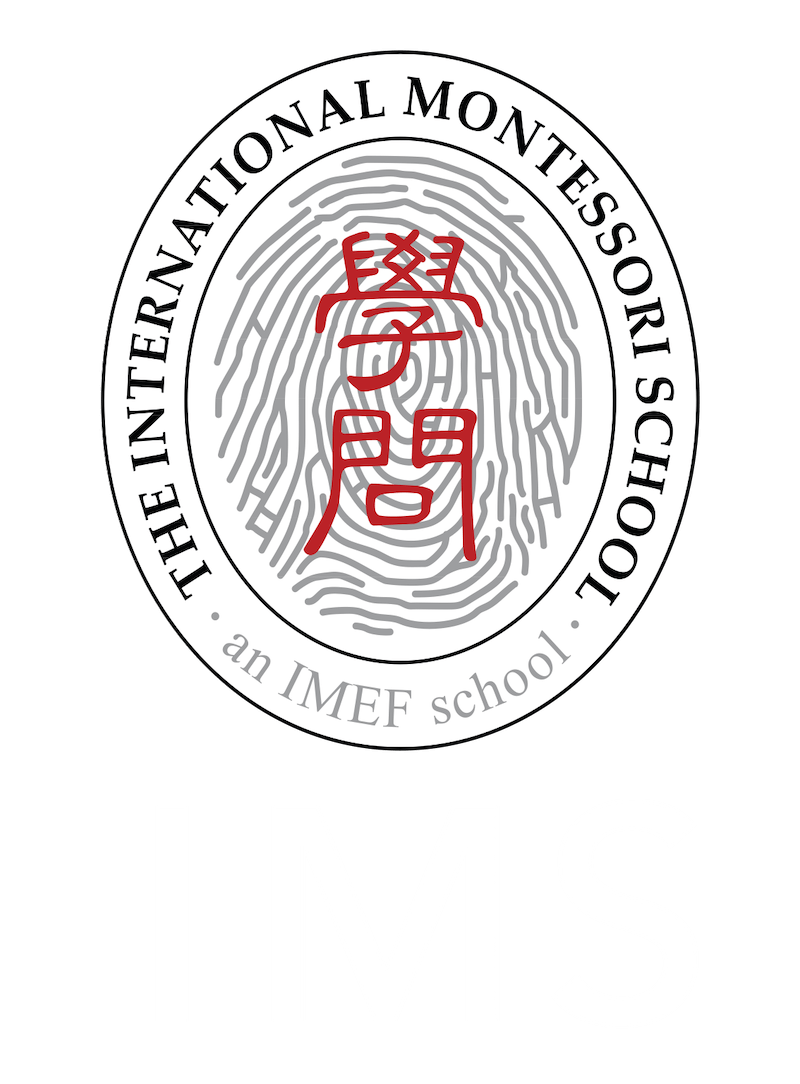
The Role of the Teacher in the Montessori Environment

A Montessori education advocates that children acquire knowledge through their own discovery and experiences, while the teacher provides them with a dynamic link to the scientifically designed materials, rather than simply being taught theory. At IMS, our AMI
trained teachers assure that your child is getting the full Montessori experience. AMI
teacher training provides a hands-on understanding of the Montessori approach—enabling transformative teaching that is mastered and practised as a work of art. AMI certified teachers know how to personalise education for each student while moving all students
forward. They develop your child’s discovery, skill-building, and independence while
guiding a classroom that works to do great work.
All IMS lead classroom teachers are highly trained professionals who hold a designated AMI Montessori certification for one age group (0-3, 3-6, 6-12), or more. We take pride in that many of our Chinese teachers are also Montessori trained, several of whom decided to
pursue their training after being inspired by their work with Montessori children. Our faculty is supported by a team of experienced curriculum leaders to uphold an excellent standard of genuine Montessori school-wide. We are committed to hiring skilled educators who are passionate about guiding each child to reach their individual full potential.

Montessori Teacher Training
Montessori teacher training is, at minimum, a nine-month in-person academic year programme, sometimes spread over multiple summers to accommodate classroom work during the academic year. A Bachelor’s Degree is a prerequisite for applying to an internationally recognised Montessori training programme.
A potential teacher must exercise wisdom in choosing a globally recognised teacher
training course. In general, the name Montessori is not trademarked, copyrighted, or patented, and can be used by any organisation with any degree, or none, of certification or teacher training. One must be sure that the qualification earned is recognised by the school where one would like to teach. IMS teachers are, for the most part, Association Montessori Internationale (AMI) trained.
During this intensive training, prospective teachers learn about Montessori philosophy, the Montessori materials, and child development. Many months of work are needed for the adult to become an expert in all of the materials and to understand how to observe to decide for whom the materials are developmentally appropriate.
Student teachers also observe in established classrooms at other accredited Montessori schools, as well as completing practice teaching under the guidance of an experienced Montessori teacher.
Creating an Authentic Montessori Environment
To create an authentic Montessori environment, a trained Montessori teacher must be able to use the materials correctly and demonstrate this to children in a way that inspires their interest. This is the Montessori teacher’s primary role. The Montessori teacher acts as the connection between each child and the material.
The teacher observes each child’s individual needs, and present the materials sequentially at the developmentally appropriate time. By awakening the child’s innate curiosity and
matching the lesson with his changing developmental needs, the trained guide can inspire the child to engage with the material. Then from his own exploration, repetition, and practice, the child can pursue his own learning. This is experiential learning.

Meanwhile, the teacher rotates around the classroom, presenting lessons to individual children or small groups. They must observe all of the children in the class and their individual activities. Observation includes noticing when a repeated lesson is necessary, when there are social situations where children require facilitation to resolve a conflict, or when a child is ready for the next lesson. Careful observation is the most important tool of the Montessori trained educator.
The art of being a skilled Montessori teacher lies in knowing how much help to give, when to offer it, and most often, when to wait and watch. Unnecessary help is a hindrance to the development of the child. Offering help for something a child can do independently weakens the child’s development, because he begins to believe that he must rely on the adult for things he could otherwise do himself. When children seek help from other children, this allows the child who is helping to reinforce the knowledge he has, and it is often the case that a child can learn certain tasks better from a slightly more experienced child than he can from an adult.
We believe that the teacher training is only the beginning of the journey, it is also essential that each faculty member has the willingness to grow in order to provide a calm and truly nurturing environment. As a team, we constantly exchange books, articles, TED talks related to Montessori, education, sociology, nutrition, psychology, brain science, and whole child development. As custodians and cultivators of this child-centred approach, we host public Montessori conferences in Hong Kong, and participate in others both locally and internationally. We are constantly striving to improve and to ask big questions. Throughout each school year, time is devoted to continuing education and professional development for our faculty to ensure the positive development of our students. As educators and advocates of lifelong learning, our own learning never ends.
Learn More about the role of the teacher in a Elementary environment
Copyright 2024 The International Montessori School - an IMEF school. All Rights Reserved.


